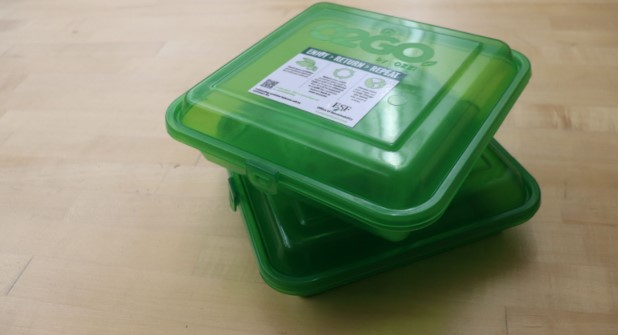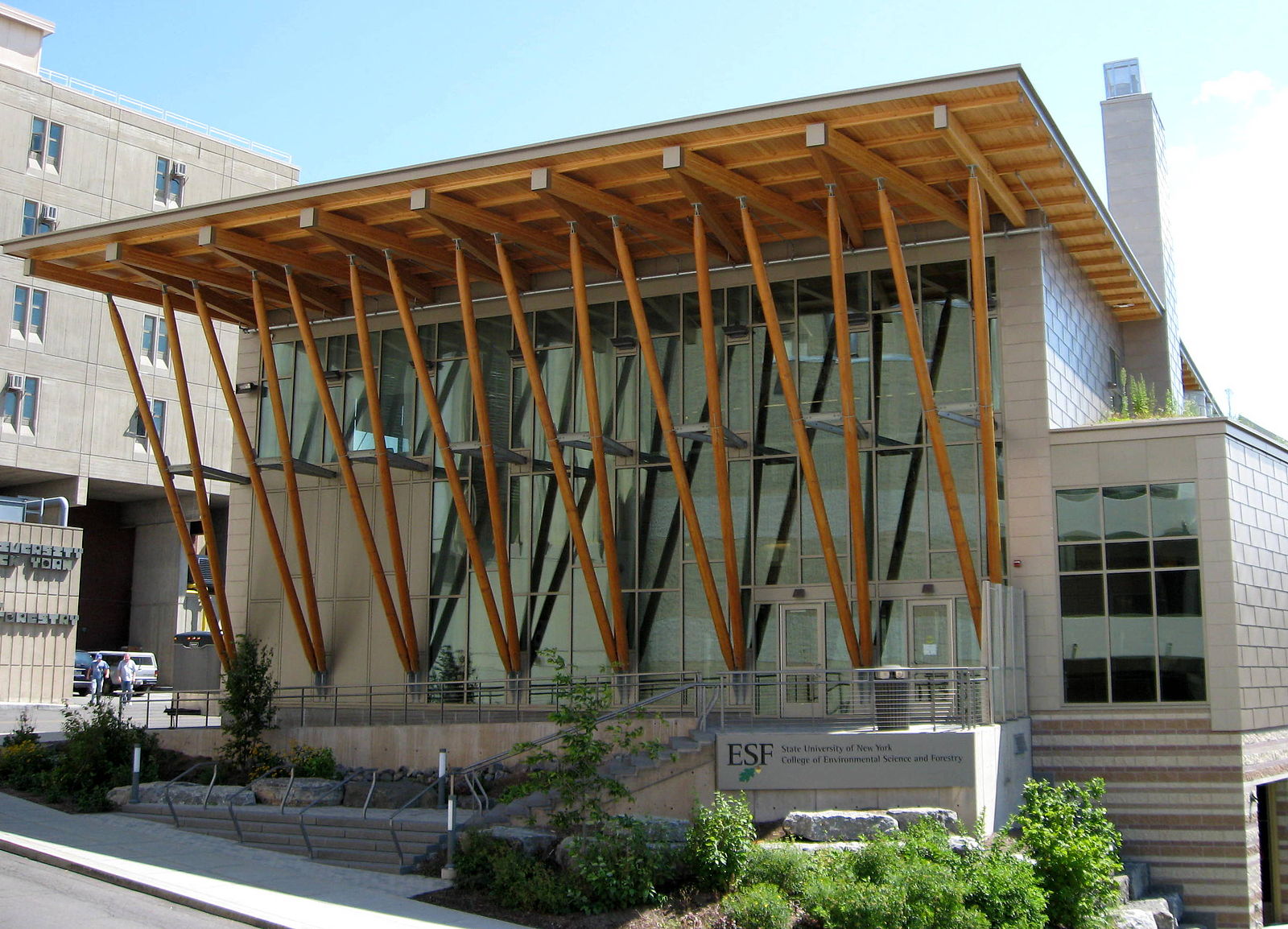
Photo by: Owen Volk

Photo by: Owen Volk
One of the top environmental issues throughout colleges and universities today is the amount of waste produced each year. According to data collected, the average college student produces 640 pounds of solid waste on an annual basis. As an environmental university, the SUNY College of Environmental Science and Forestry (SUNY-ESF) is always looking for new ways to reduce waste and pollution throughout the campus and improve sustainability. But in order for new initiatives to be successful, there must be an active student community who are motivated to participate. Here are two examples that have been spearheaded by the Office of Sustainability that are being used by staff and students campuswide.
The Reusable Food Container Program is the first program that was introduced. Susan Fassler, the Director of Sustainable Operations on campus piloted the program in the 2021-2022 academic year. It began by providing all incoming students with a set of reusable containers: a clamshell, a soup cup, and a carabiner to attach the containers to backpacks. Theoretically, students would carry containers with them and switch out their dirty ones for clean ones when grabbing their food orders at the Trailhead café, a popular lunch spot on campus. For students who commute, there was an option to opt into the program for an $8 fee.

Though the program had several hiccups, after Syracuse University took over the Trailhead café in the fall of 2022 , the system improved to a more reliable and better ID system. “All students and staff moving forward will have three containers uploaded onto each ID card. This allows for them to use three containers at a time to receive meals from the café. Once returned, they are re-added to ID cards, and they again have up to three before they have to use compostable containers that come with a fee,” said Lexi Chipules, a member of the Sustainability Office. The hope is that this program will help to cut back on the use of compostable and single-use packaging from students taking the compostable packaging to-go or using those same packages for in-house dining. “There’ve been countless amounts of times that I’ve seen students order to-go packaging just to see their friends, and sit and eat,” Chipules said.
The program is also backed by the workers at Trailhead. “It’s a pretty straightforward and easy process, and it does a really good job reducing the amount of waste that we produce,” student supervisor Nicole Minardi said. “The amount of plastic waste from the wrapping on the biodegradable containers kind of went against the whole point of the containers themselves.” The compostable containers will still be available to students and visitors of campus, though there will be a fee added on to the sale. There are also hopes that when the system is finalized, there will be linked reminders when containers are loaned out for extended periods of time, and then fees will be automatically charged to the account if they aren’t returned.
The Green Office Certification program is primarily used by staff, student organizations, and clubs around campus to provide resources to help find sustainable materials and catering options for events. A list is being compiled that lays out all of the different sustainable items like plates, banners, silverware, cups, etc. as well as different restaurants throughout Syracuse that provide food options that better cover dietary needs of attendees and source and use healthy and sustainable ingredients to make the dishes.
Other recommendations can also be found such as how to properly take into consideration dietary restrictions, and questions that can be provided to participants to provide a better sense of inclusivity to all. The model was followed last year when an on-campus sustainable fashion show was hosted by the Environmental Studies Student Organization (ESSO). It was a successful event, with many of the boxes of sustainability covered. The restaurant that catered last year shut down, but this year they are working with the newly opened Syracuse CO-OP downtown that prides itself in serving the community in a sustainable way.
Though new, these initiatives have already proven to be worthwhile in limiting the amount of waste produced throughout the campus. Waste audits conducted on the trash collected around campus showed a favorable decline in the amount of unnecessary trash and un-processable materials being disposed of throughout campus. Paired with the ongoing composting program, the campus has been able to greatly reduce the amount of solid waste trash collected and sent to the trash incinerator in Syracuse and ever-growing landfills throughout New York. The introduction and implementation of these sustainability practices on campuses and nationwide could have a large impact on the amount of solid waste being disposed of and greatly improve the health and longevity of our planet.